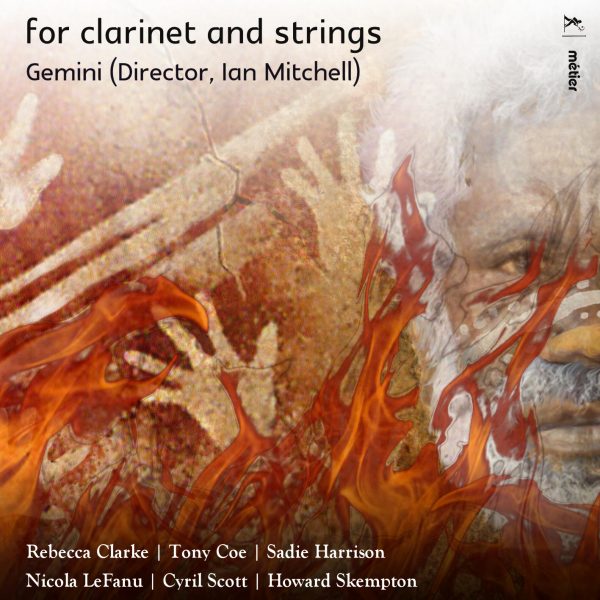The Chronicle Review Corner
Despite the title — modern collections like this can be a little fearsome — this is palatable and not all that demanding, though it has a few moments; just be aware that if you’re looking for Now That’s What I Call Clarinet, keep walking.
Gemini is a chamber ensemble, founded in 1978. This programme emerged from recordings mostly made in 1995, after Gemini was a prize winner in the 1993 Prudential Awards for the Arts. It used the money to record various works, but it proved to be “a challenge” to find a record company to take the mixed repertoire (single composers are easier to find on alphabetically arranged shelves and in catalogues) so the tapes gathered dust for a spell.
Despite the title the pieces are not necessarily ones where the clarinet is a soloist, instead being mostly part of an ensemble. Cyril Scott’s Clarinet Quintet opens and illustrates this well. After a momentarily suggesting-a-challenge start, it’s an enjoyable piece, slightly edgy but flowing, suggestive of the music from an arty film about DH Lawrence, as a character walks through a wood having a bit of a mental crisis, a nice blend of autumnal leaves and strife.
Songs without Words by Nicola LeFanu does focus more on the clarinet, and Catalunya!, as the exclamation mark suggest, is lively and jolly, though it’s followed by Remembrance, dedicated to those who were dying in the Middle East. This one is melancholy but rather lovely, a mood retained by Lullaby, a piece from Howard Skempton for clarinet and cello.
The slightly dreamy feel continues through Tony Coe’s Dream Odyssey, three short pieces that pass by uneventfully, and into Rebecca Clarke’s Prelude, Allegro, and Pastorale. Here, although the second movement takes a more strident turn, it’s still melodic and the closing Pastorale is lovely and probably the best six minutes on the album.
The album closes with two longer pieces, Sadie Harrison’s Fire in Song, scored for clarinet, viola, and clapsticks. The work was written during the catastrophic bush fires that swept much of Australia in 2019/2020 (and recorded 25 years after most of the other pieces) and reflects on the Aboriginal approach to these fires. The opening and closing pieces, both laments, are little gloomy but the sections in the middle feature bandicoot, hollow logs, quails burning twig, honey bees and a saltwater crocodile and are interesting.
Howard Skempton’s Gemini Dances end the album. These were commissioned by Bromsgrove Concerts and are highly listenable.
Enjoyable and imaginative, this is out on Metier, MSV 28608.
@divineartrecordingsgroup
A First Inversion Company
Registered Office:
176-178 Pontefract Road, Cudworth, Barnsley S72 8BE
+44 1226 596703
Fort Worth, TX 76110
+1.682.233.4978












